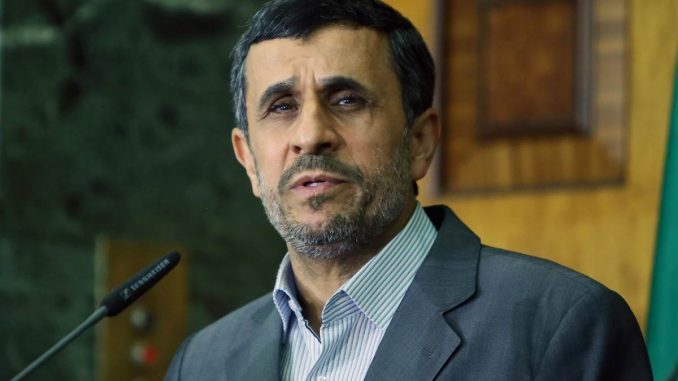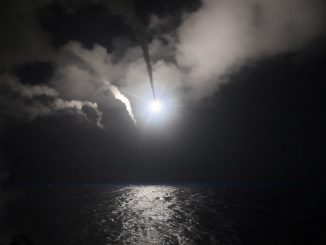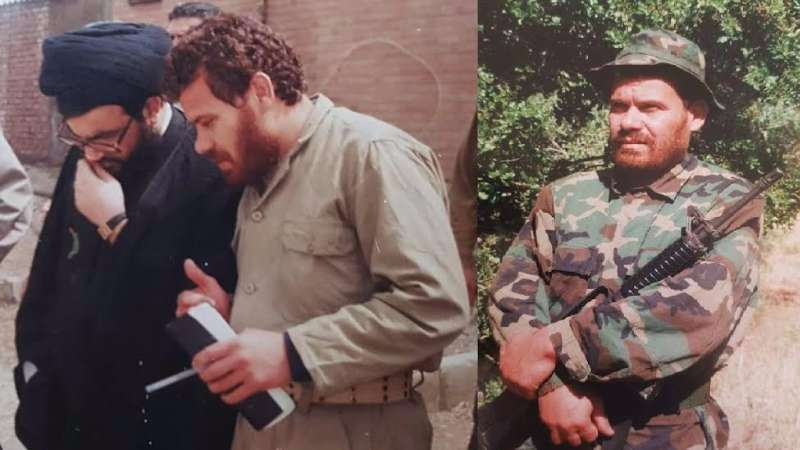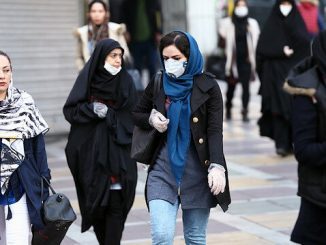
Political divisions among the Iranian hardliners’ ranks became clearer after the former President Ahmadinejad announced taking part in the upcoming Iranian elections despite warning from the supreme leader Ali Khamenei, adding more challenges that Rouhani will face for his second term.
Iran made a historic nuclear deal with P5+1 powers in 2015, in which Tehran agreed to amend its nuclear output in order to lift all nuclear-related economic sanctions, freeing up tens of billions of dollars in oil revenue and frozen assets.
After lifting the sanctions, Iranian president Hassan Rouhani visited Europe and made deals that worth billions of dollars. European companies started looking for investment opportunities in the growing Iranian market.
Rouhani won the presidency in 2013 with the backing of mainly of young people and women. He promised to bring Iran out of its international isolation and create a freer society.
But many ordinary Iranians have lost faith in him because he has not been able to improve the economy despite the lifting of sanctions in January last year under the nuclear deal.
Doubts have been cast on whether Hassan Rouhani will be capable of pulling off a victory as he is facing escalating criticizing from his rivals, the hardliners, who have nominated various figured to run for the presidency.
However, the hardliners’ nominations witnessed a surprise when the former president Ahmadinejad announced taking part in the upcoming Iranian elections despite warning from the supreme leader Ali Khamenei.
Ahmadinejad’s nomination
Iran’s former hardline president Mahmoud Ahmadinejad took the surprise move on Wednesday of registering for next month’s presidential election.
Supreme Leader Ayatollah Ali Khamenei revealed last year that he had recommended to Ahmadinejad not to enter the contest.
Khamenei praised Ahmadinejad as “courageous, wise and hard-working” after his re-election in 2009, which ignited an eight-month firestorm of street protests. His pro-reform rivals said that vote was rigged.
But throughout Ahmadinejad’s presidency, Khamenei was wary of him, and his insubordination and relentless self-aggrandizement rankled the hardline clergy.
Khamenei’s backers accuse Ahmadinejad’s camp of pursuing an “Iranian” school of Islam, viewed as an inappropriate mix of religion and nationalism. Ahmadinejad may pay the price for disobeying Khamenei by running for president, analysts said.
“Khamenei will not forget this move, which was aimed to harm his image,” said political analyst Hamid Farahvashian.
“[The decision] was an organized mutiny against Iran’s ruling system,” Soroush Farhadian, who backs political reformists, told the AP.
A former officer of Iran’s elite Revolutionary Guards Corps (IRGC), Ahmadinejad relies on Iran’s devout poor, who felt neglected by past governments and helped sweep him to power in 2005. However, his popularity in Iran remains in question.
“Ahmadinejad’s faction is still alive. He enjoys the support of the poor and lower-income in the cities,” said Leylaz.
Rouhani and his allies have criticized Ahmadinejad’s free-spending policies for fueling inflation and accuse him of wasting Iran’s oil revenues.
Ahmadinejad’s critics say his fiery anti-Western talk helped isolate Iran diplomatically. During his term, the U.N. Security Council imposed three sets of sanctions on Iran over its nuclear program.
Supporting Baghaei against other hardliners
However, Ahmadinejad had previously said he would not stand after being advised not to by supreme leader Ayatollah Ali Khamenei, saying he would instead support his former deputy Hamid Baghaie who also registered on Wednesday.
He told reporters he remained committed to his “moral promise” to Khamenei of not running for the May 19 election.
“I repeat that I am committed to my moral promise (of not running) and my presence and registration is only to support Mr Baghaie.”
Ahmadinejad accompanied Baghaei to the interior ministry on Wednesday for registration.
While conservatives are worried that Ahmadinejad or Baghaei’s presence might split their votes, allies of Rouhani are also concerned about the attractiveness of populist candidates with nationalist anti-establishment slogans.
Baghaei, 48, was held under arrest in 2015 for almost seven months on charges that were not made public but many suspected were related to corruption. Iran’s judiciary spokesman said in March that his case was still open.
Insiders said if Baghaei is disqualified, Ahmadinejad is likely to call on his supporters to back Rouhani, whose main rival is likely to be influential hardline cleric Ebrahim Raisi, who declared his candidacy on Sunday.
“The irony is that by spoiling the conservatives’ game and taking away from Raisi’s voter-base, Ahmadinejad is in fact aiding Rouhani’s re-election,” said senior Iran analyst Ali Vaez of the International Crisis Group.
Conservative candidates: Raisi
Iran’s powerful hardliners have been gearing up for a showdown in the May 19 vote to end Rouhani role at the borders of its first term and regain the presidency.
Iran’s conservatives announced a shortlist of five presidential candidates on Thursday as they experimented with their first-ever democratic primary in a bid to find a leader to challenge Rouhani.
Analysts say Raisi, thanks to the support he enjoys from Supreme Leader Ayatollah Ali Khamenei, could pose a real challenge to Rouhani’s bid for a second term.
Raisi, 56, is the custodian of Astan Quds Razavi, the wealthiest charity in the Muslim world and the organization in charge of Iran’s holiest shrine. He had barely reached adulthood by the 1979 Islamic revolution but rose quickly through the ranks. In the summer of 1988, he was one of the four sharia judges behind the mass execution of leftists and dissidents. More recently he was Iran’s prosecutor general.
Raisi has faulted Iran’s economic performance under Rouhani and his pursuit of detente that in 2015 yielded a landmark deal with world powers under which Tehran curbed its disputed nuclear program in exchange for the lifting of sanctions.
Raisi said in a statement on Sunday he had been reluctant to seek office but had made the decision to run after he deemed it to be his “religious and revolutionary responsibility”.
“People are asking why despite all our resources and human talents …our country is in this situation,” Raisi said in a statement published by Iranian news agencies.
“The key solution to our problems is the fundamental change in the executive management of the country by the will of the people, and the formation of a competent and knowledgeable government that works day and night to bring back the dignity of the people and fights poverty and corruption.”
If he wins the May 19 vote, Raisi would boost his chances of eventually succeeding Khamenei, who himself served two terms as president under the late founder of Iran’s 1979 Islamic Revolution, Ayatollah Ruhollah Khomeini.



